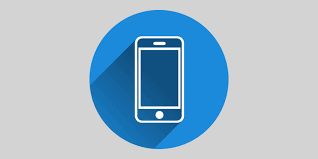 Blog's Page
Blog's Page

In An Era Where Smartphones Have Become An Extension Of Our Lives, Concerns About Privacy, Security, And Data Protection Have Taken Center Stage. Choosing The Safest Mobile Operating System (OS) Is A Critical Decision That Impacts Our Digital Lives.
But Which OS Can Genuinely Claim The Title Of Being The Safest In The World? In This Article, We Delve Into The Features, Strengths, And Considerations Surrounding Various Mobile OS Options To Help You Make An Informed Choice.
When It Comes To Mobile OS Options, The Primary Contenders That Often Come To Mind Are Apple's IOS And Google's Android. Both Systems Have Their Merits And Areas Of Excellence In Terms Of Security, But They Approach Security From Different Angles.
Apple's IOS Is Often Hailed For Its Stringent Security Measures, Which Are Embedded Within The Entire Ecosystem.
Some Key Security Features Include:
App Store Review Process: Apple's Rigorous App Review Process Helps Filter Out Malicious Apps Before They Reach Users' Devices.
End-to-End Encryption: IMessage And FaceTime Use End-to-end Encryption, Making Communication More Private And Secure.
Hardware And Software Integration: The Close Integration Of Apple's Hardware And Software Allows For Better Control Over Security Mechanisms.
Limited App Permissions: IOS Apps Have More Limited Access To Device Features And User Data, Reducing The Potential Attack Surface.
Android, While Historically Considered More Vulnerable Due To Its Open Nature, Has Significantly Improved Its Security Measures:
Google Play Protect: Google's Security Suite Scans Apps For Malware Before And After Installation.
Project Mainline: This Initiative Enables Google To Deliver Security Updates Directly Through The Google Play Store, Bypassing The Device Manufacturers.
Biometric Authentication: Android Devices Support Various Biometric Authentication Methods, Enhancing Device Security.
Customization And Open Source: Android Allows Users To Customize Their Devices, But This Freedom Can Also Introduce Vulnerabilities If Not Managed Properly.
Privacy Is An Essential Aspect Of Safety, And Both IOS And Android Offer Features To Protect User Data:
iOS: Apple Emphasizes User Privacy By Implementing Features Like App Tracking Transparency, Which Requires Apps To Request Permission Before Tracking Users Across Other Apps And Websites.
Android: Google Has Introduced Similar Privacy Controls, Including The Ability To Limit App Access To Location Data And A Privacy Dashboard That Offers Insights Into How Apps Use Your Data.
Regular Security Updates Are Crucial For Maintaining The Safety Of A Mobile OS.
Both IOS And Android Have Made Strides In This Area:
iOS: Apple's Centralized Approach To Hardware And Software Allows It To Provide Regular Updates Directly To Devices, Minimizing Fragmentation.
Android: While The Android Ecosystem Is More Fragmented Due To Various Device Manufacturers, Google's Project Treble And Project Mainline Initiatives Aim To Streamline Updates.
Determining The Safest Mobile OS In The World Involves Understanding The Strengths And Weaknesses Of Each Platform.
While IOS Offers A Tightly Controlled Ecosystem With Robust Security Features, Android Provides Customization And Control, Backed By Google's Security Efforts.
Ultimately, The "safest" OS Depends On Your Individual Preferences And Priorities. Whichever OS You Choose, Remember That Your Behavior Also Plays A Crucial Role In Maintaining Your Device's Security.
Regularly Updating Your Device, Using Strong Passwords Or Biometric Authentication, And Being Cautious Of The Apps You Install Are All Vital Steps To Ensure Your Mobile Experience Remains Safe And Secure.
Safest Mobile OS, Safest Mobile Operating System, Safest Mobile Operating System In The World